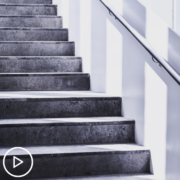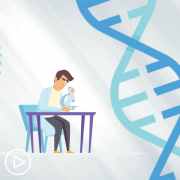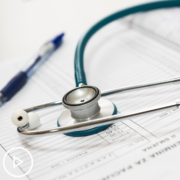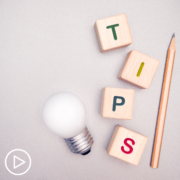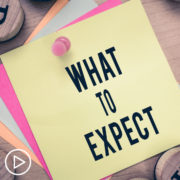Diagnosed with CLL? An Expert Outlines Key Steps
Diagnosed with CLL? An Expert Outlines Key Steps from Patient Empowerment Network on Vimeo.
You’ve been diagnosed with chronic lymphocytic leukemia (CLL), now what? Dr. Matthew Davids explains key steps to take following a diagnosis. Need help speaking up? Download the Office Visit Planner and bring it to your next appointment here.
Dr. Matthew Davids is the Associate Director of the CLL Center at Dana-Farber Cancer Institute. More about this expert.
See More From The Pro-Active CLL Patient Toolkit
Related Resources

|
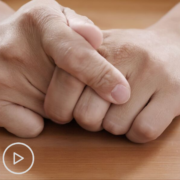
|

|
Transcript:
Dr. Matthew Davids
So, if I were diagnosed with CLL today, we’ve discussed some of the resources that are available in terms of educating one’s self about the disease: CLL Society website, other videos on VJHemOnc, things like this. There are other websites that give more basic information about the disease, for example, Lymphoma Research Foundation, American Cancer Society, American Society of Clinical Oncology.
So, personally, I would want to know a lot about the disease. And I would probably first turn to these particular resources, which I think can be very helpful.
I would certainly partner with a local oncologist hematologist who can help guide the management. But one thing that you should remember is that most general practitioners for oncology may only see a few CLL patients a year, and the field has changed quite a bit over the last few years. And it can be hard to stay completely up to date on all of these developments.
So, one thing that I would think would be very helpful for anyone diagnosed with CLL is that, if you do have access to a major center that has someone who specializes in CLL or at least in lymphomas, that can be a great resource. And so, I do recommend, if patients can do it, to try to seek out a second opinion from a CLL specialist. And this can be very helpful even if the recommendation is still just observation, that they can help educate about the disease, identify other resources for educational purposes, and just become a part of your team, to have them available down the line.
And I see many patients like this who come for a second opinion at diagnosis. And I kind of tell them, “Go back to your local doctor. Stay on observation. It’s likely you’ll do well for many years on this watch and wait strategy. But at the time when they’re recommending that you need treatment, come back and see me then. It’s easier to get in once I know you.”
And at that point, I can help reassess, 1.) Do I agree that treatment is really needed at that point? Sometimes, it’s actually possible to wait even a bit longer; and then, 2.) What would I recommend for the best treatment option at that time? Could be a clinical trial that might only be available at that center. And I think unless you have a CLL specialist on your team, it’s gonna be hard to know about those available resources.
So, it’s not that you necessarily need to follow exclusively with a CLL specialist. But it’s more to just have them involved, have them know about you. And that way, if you need them down the line, they’ll be available to help support you.
I think in terms of education and self-advocacy, this is a very personal issue. And so, for many of my patients, it’s very important that they are educated about the disease and kind of know the ins and outs of the different clinical trials and so forth.
But it’s also important to remember that that’s not gonna be true for every patient. A lot of my CLL patients are also older patients, and they may not want to know all the details of what’s going on. I think it is important to have someone who’s involved with your care know about these details. Ideally, if it’s not you, it might be a spouse or a partner or a child, for example. A lot of my older patients don’t wanna know all the details about the molecular biology and the clinical trials. But often, it’s their son or daughter who is there with them who wants to know this.
And so, I think it’s helpful often to bring a family member with you to the visits. Because as you can see even from today, there’s a lot of information to learn, and it can be hard to remember everything.
So, having someone else, another set of ears and eyes, someone else can maybe take some notes at the visit and review them with you later, I think can be very, very helpful in terms of your own self-awareness about the disease.
So, in general, I love when patients ask me questions. Sometimes, they are very savvy questions. They are familiar with the literature, and they can kind of really push me to explain my opinions and beliefs about certain treatments. And sometimes, they’re just very basic questions that may be seem silly to the patient but are really not silly questions.
Really, this is a brand-new area for most patients. They have no experience with this when they first start out. So, they should never feel like they’re bothering their oncologist with these questions. I think it’s really important for them to understand the basics of what’s going on. That should really be a minimum for every patient.
And then for patients who wanna know more about some of the details from the research and the clinical trials, I think their doctor should also be able to help explain that to them as well. So, they should never feel like they’re bothering their oncologist with their questions.

